Reflective Log: Analyzing the International Monetary Fund's Impact
VerifiedAdded on 2020/06/06
|5
|1169
|135
Journal and Reflective Writing
AI Summary
This reflective log examines the role of the International Monetary Fund (IMF) in global financial stability, drawing upon the student's analysis of its functions, services, and impact on member countries. The student reflects on the IMF's role in assisting with balance of payments adjustments, managing exchange rates, and providing financial support during crises, particularly in the context of the 2007-09 financial emergency. The log explores the IMF's services, including surveillance, financial, and technical support, while also noting criticisms and comparing the IMF with the World Bank. The student discusses research methodologies, data collection, and analysis, concluding that the IMF plays a vital role in supporting countries during financial crises and promoting international monetary cooperation. The log highlights the importance of evaluating the IMF's effectiveness through its processes and regulatory bodies, emphasizing its focus on financial stability, in contrast to the World Bank's emphasis on economic growth. The student uses both primary and secondary data to support their arguments and concludes with a discussion of the IMF's significance in promoting higher employment, facilitating international trade, and securing financial stability.
1 out of 5
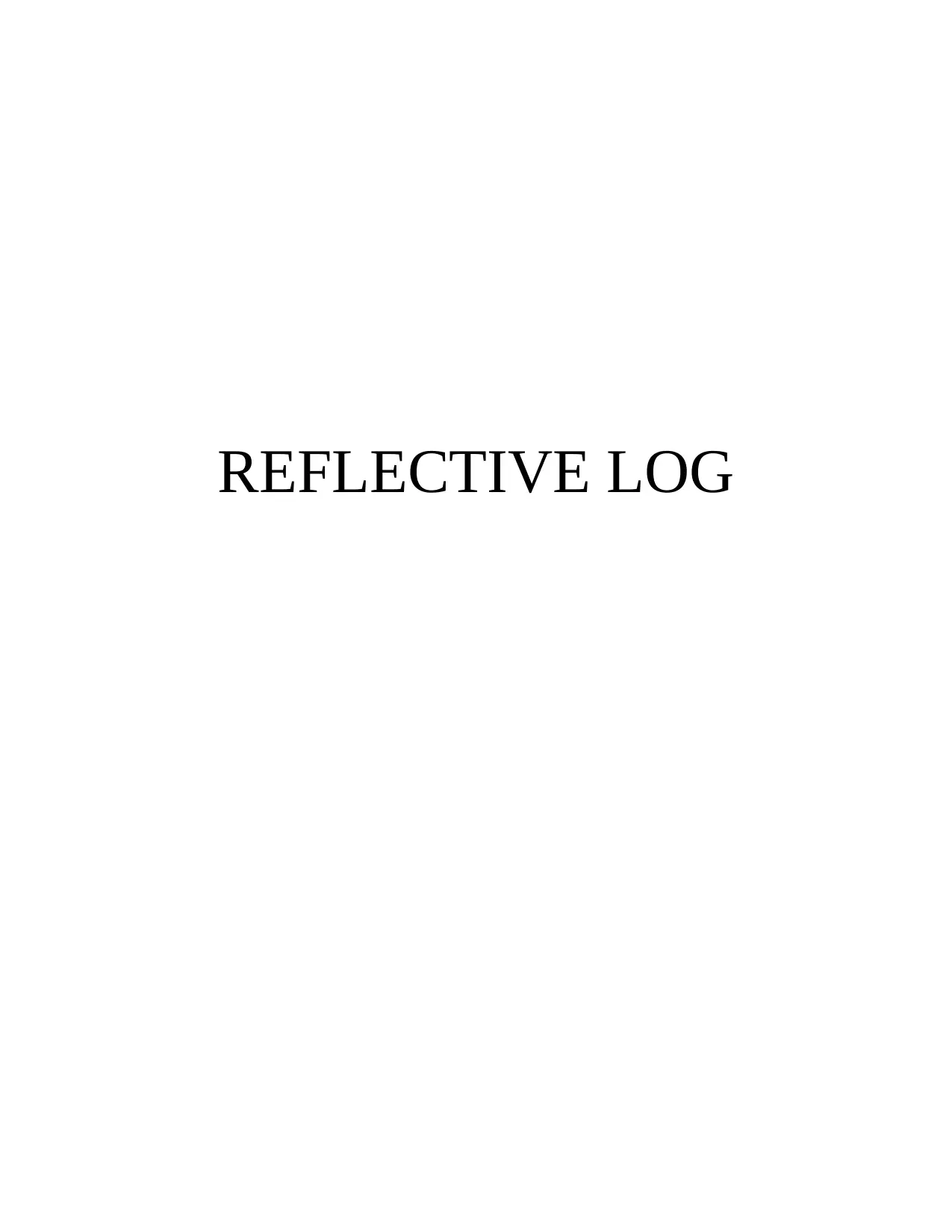
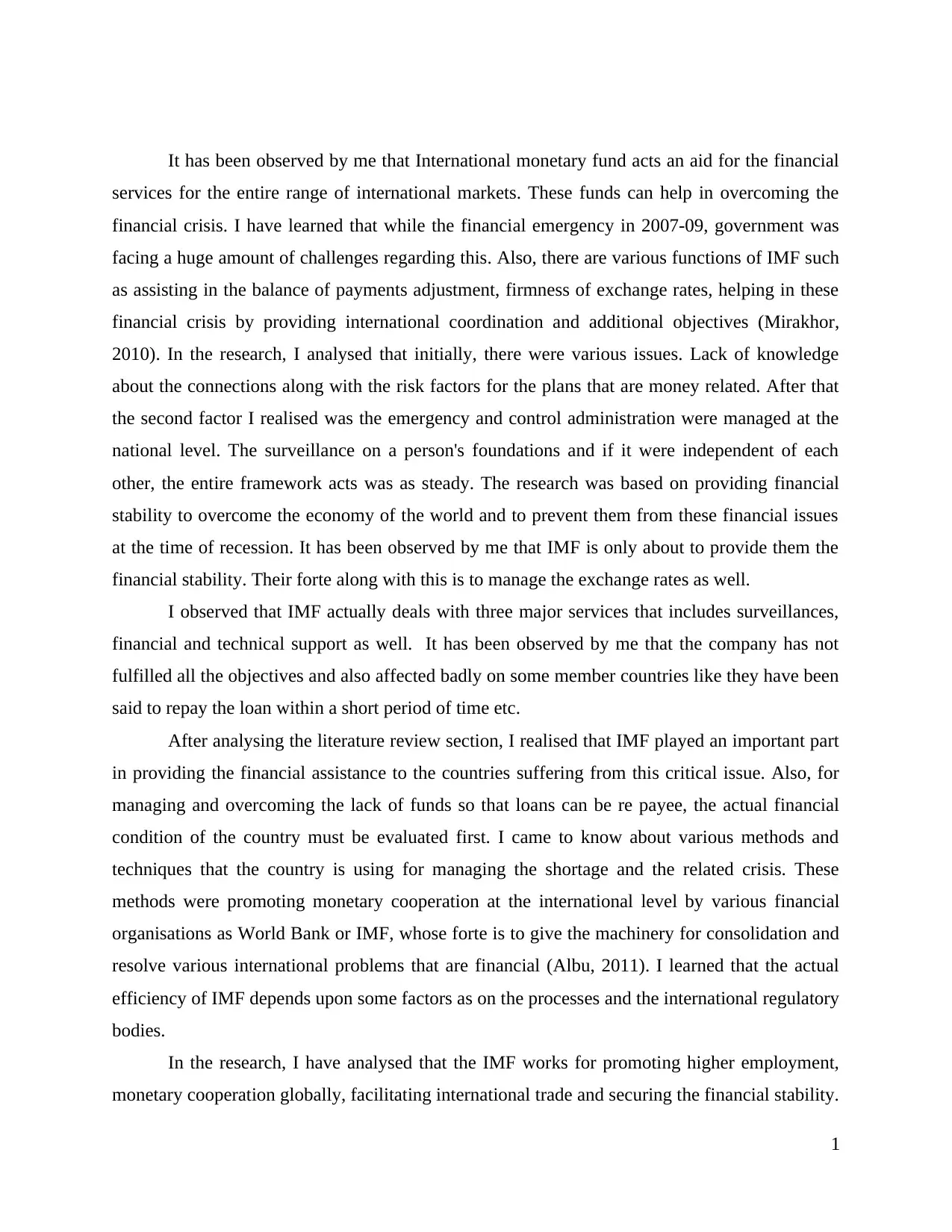
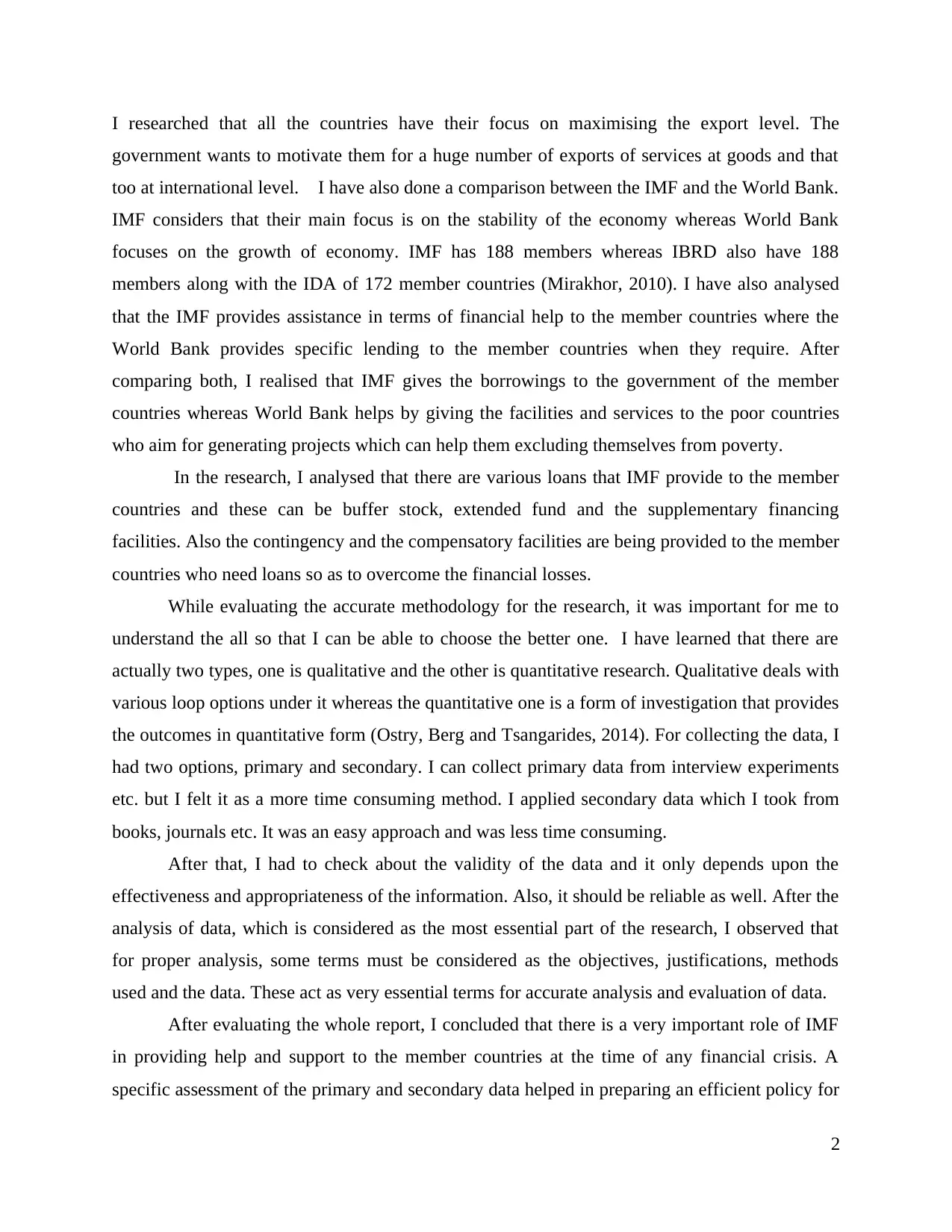

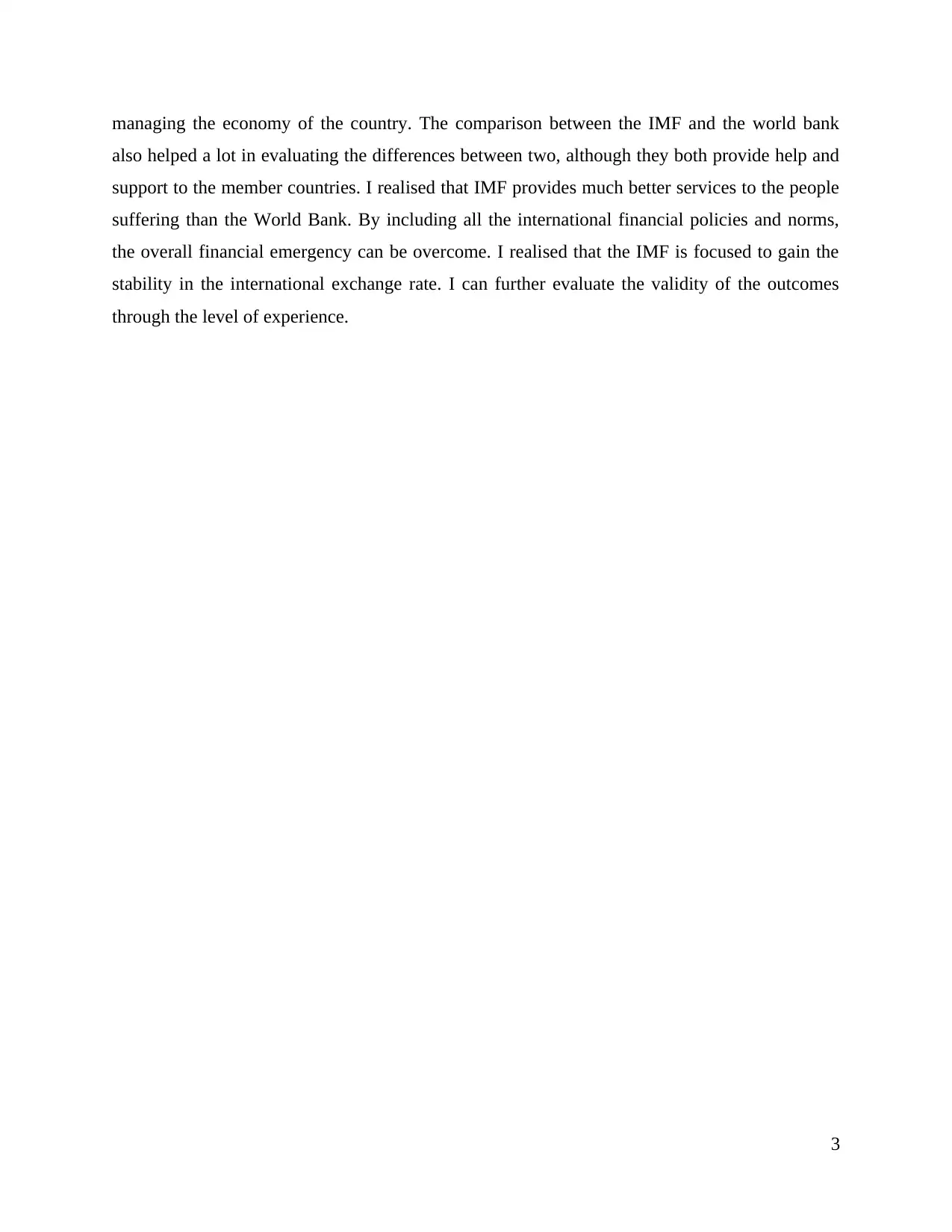
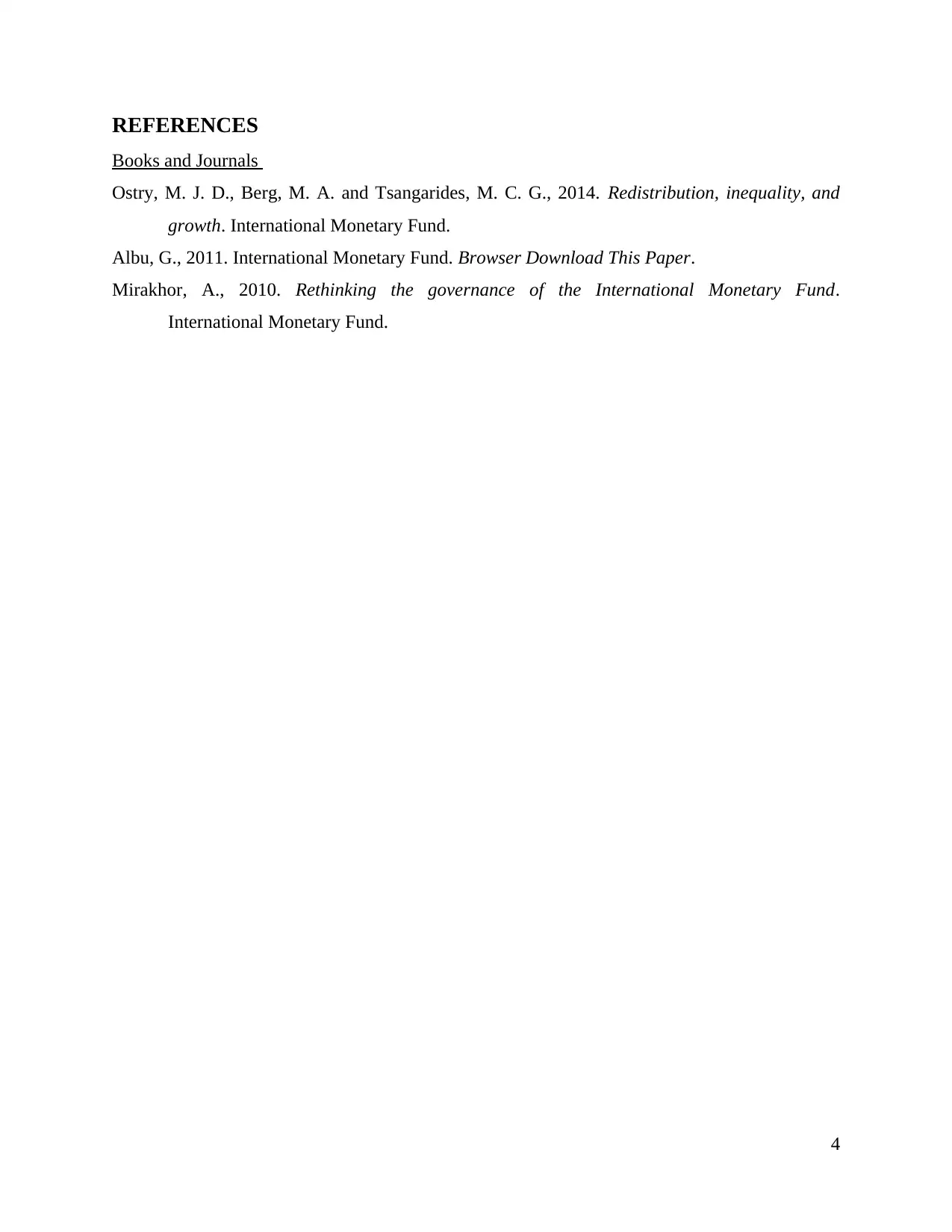






![[object Object]](/_next/static/media/star-bottom.7253800d.svg)